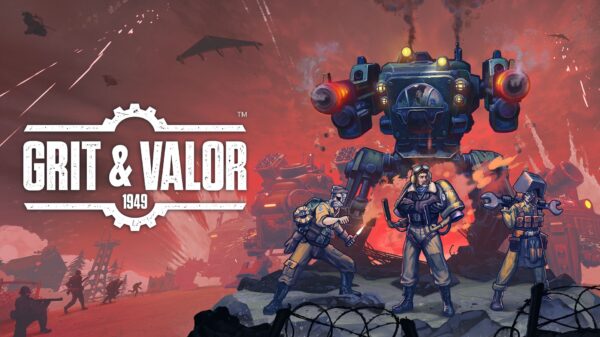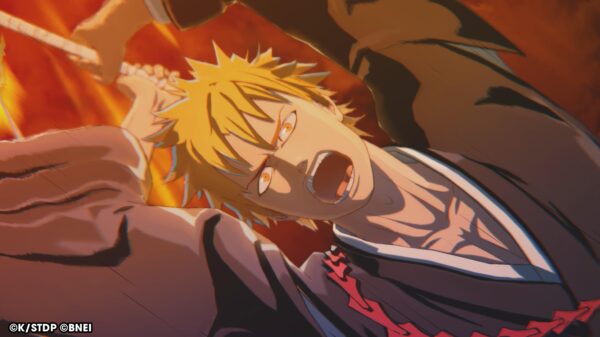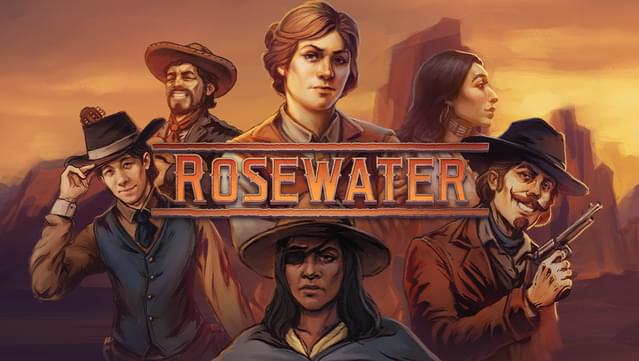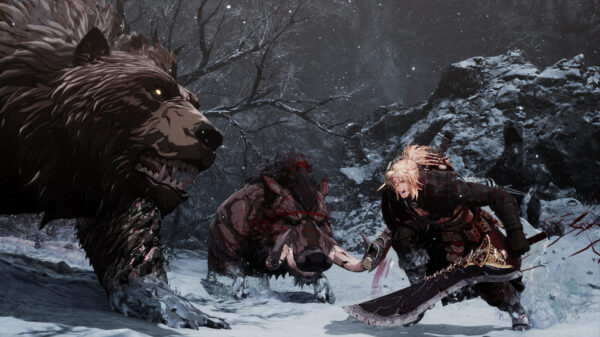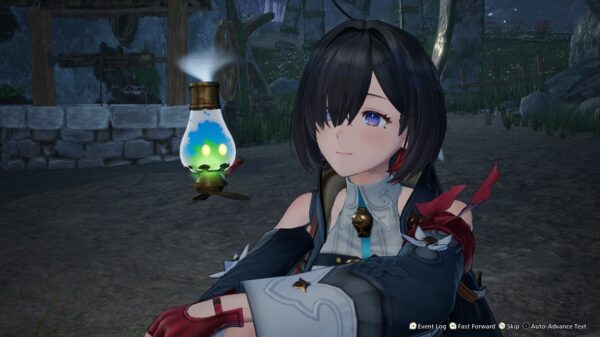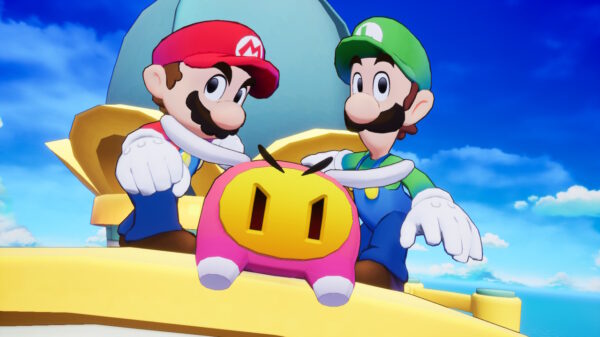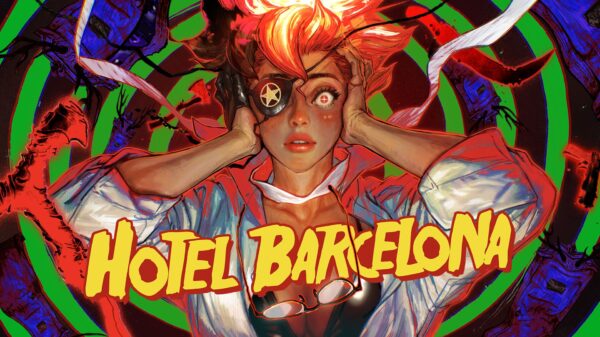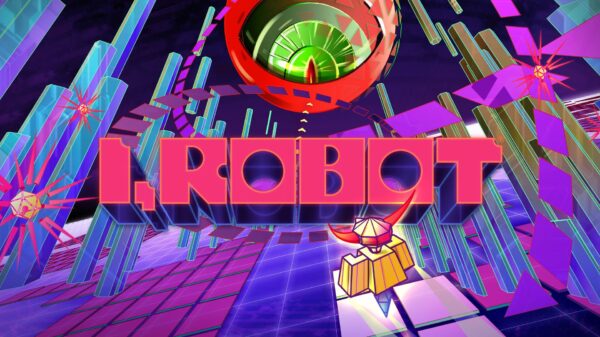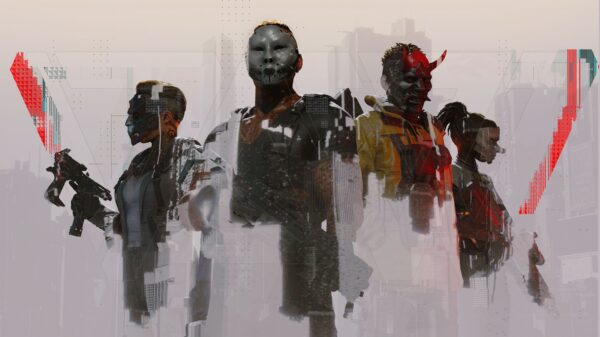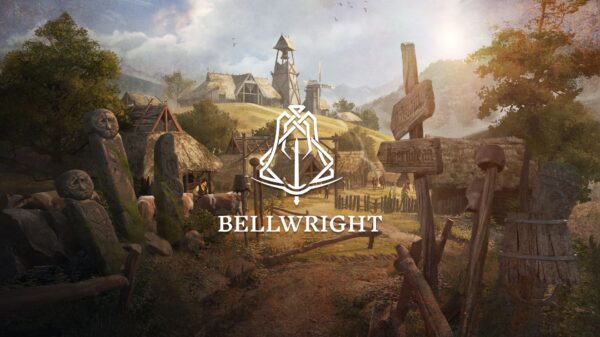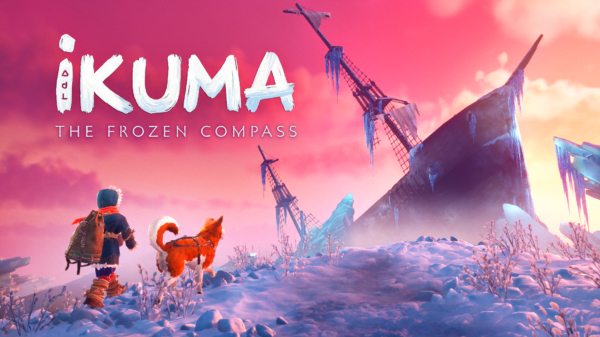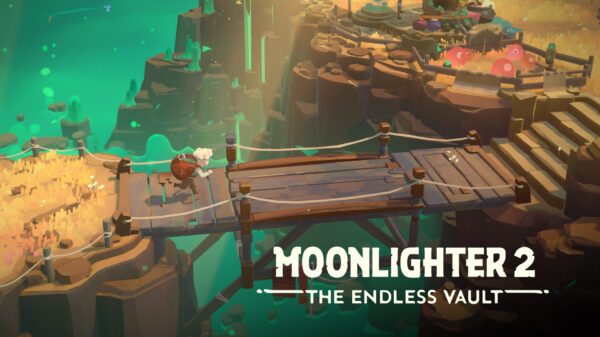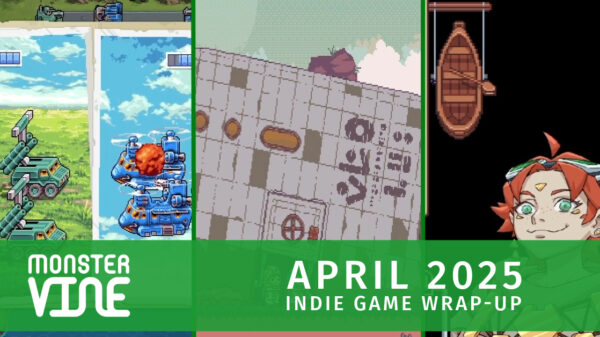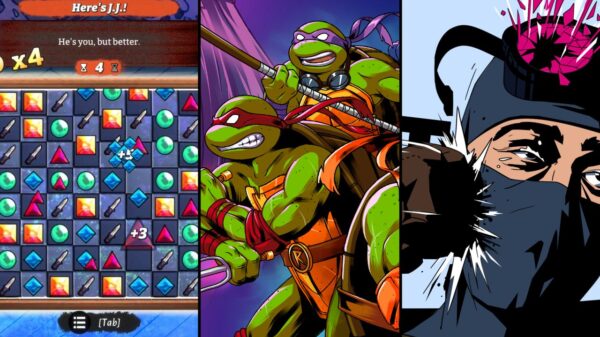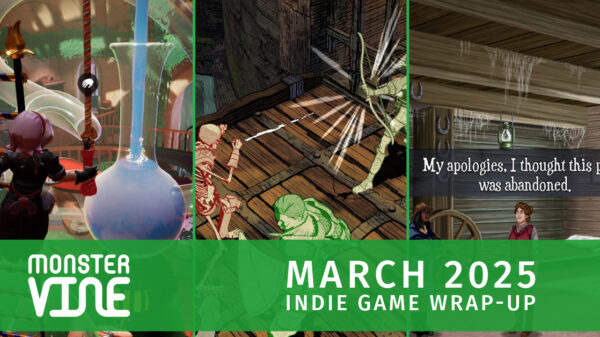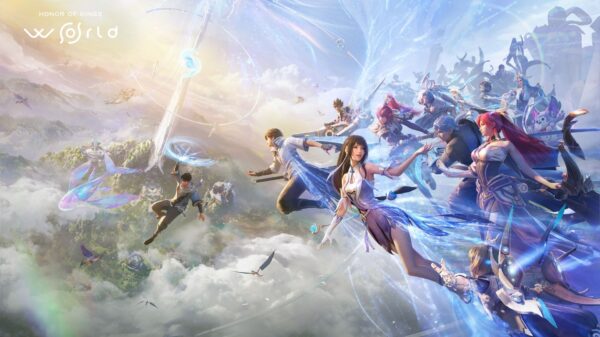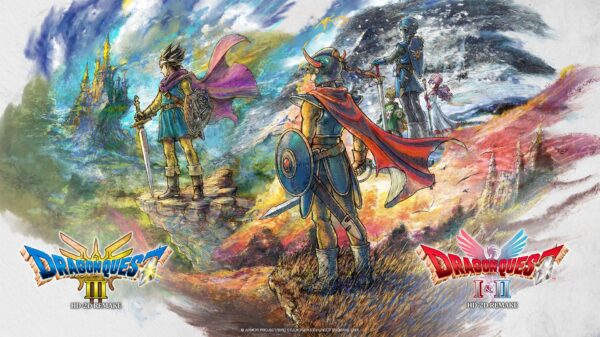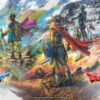I’ve always had a soft spot for RPGS–being a writer, an RPG allows me to have a hand in watching characters grow and change, as well as learning about their dreams, regrets, hopes, and wishes. Having said that, Dragon Quest IV takes a novel (no pun intended) approach to the genre by dividing up the game into different chapters like a book, each focusing on a different companion until they join up with the hero in time to save the world. But does this help or hurt the experience?
Just be forwarned, there will be some spoilers in here, so if you want to be surprised, click away now.
Dragon Quest IV: Chapters of the Chosen
Developer: Square Enix
Platform: Nintendo DS (reviewed)
Still with me? Let’s break the game down:
Story: At its heart, DQIV is a classic save-the-world tale. But by breaking up the experience to focus on specific characters, every character benefits with some time in the spotlight in some way, and we, the players, learn what makes them tick. For instance, Alena wants to prove herself in the tounament at Endor, Torneko wants to own his own shop, and sisters Meena and Maya want to learn who killed their father and why. Had this been one long experience, we probably would never learn so much about the characters (except maybe as a passing reference or in a cutscene), and breaking up the story into chapters makes the game that much better for it.
Graphics: The graphics are clean, colorful, and classic 2-D that look as if they came out of DBZ (which is not surprising when you consider that Akira Toriyama, creator of DBZ, is also the DQ character designer) There is also a rotating camera that literally allows you to see everything from a number of angles–which does prove crucial on your journey, as some items you will not be able to see until you do adjust the camera. That said, the only instance of 3-D I could find, the opening sequence, suffers from the same problem as Final Fantasy and Suikoden: It looks nice at the cost of looking blocky, grainy and squished, but this is likely caused by the DS’ lack of power compared to the big consoles.
Sound/Music: Most, if not all, the classic DQ noises and musical themes are here: the bombastic opening theme, the select file theme, the spell cast noise, noises for the heroes and monsters making their moves, and so on. They all sound great, lending to the environs and storyline perfectly.
Gameplay: Gameplay is easy to learn–use the D-pad to move around, A to interact with the world, and the shoulder buttons to manipulate the camera–no stylus or mic needed.
Rent or Buy?: An interesting spin on the RPG genre is worth at least a rental, if not a flat out purchase.

